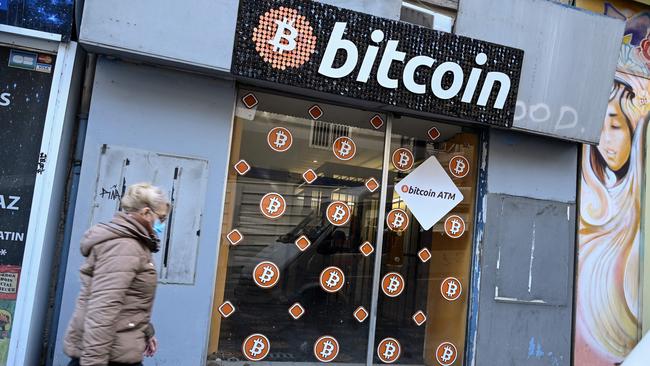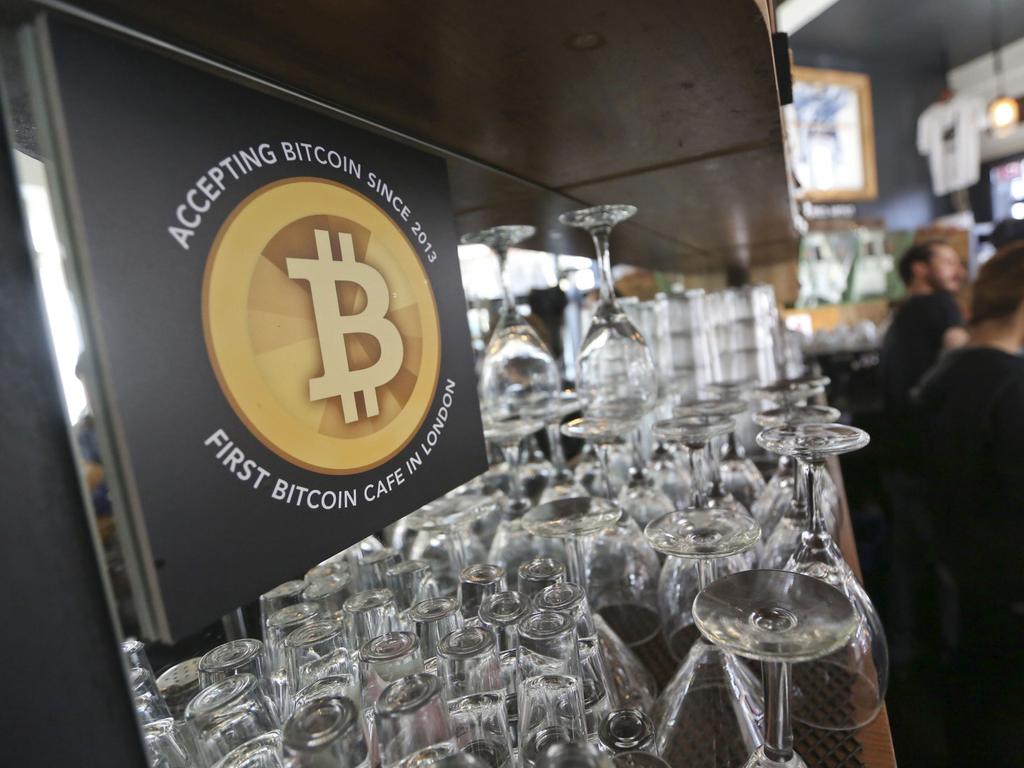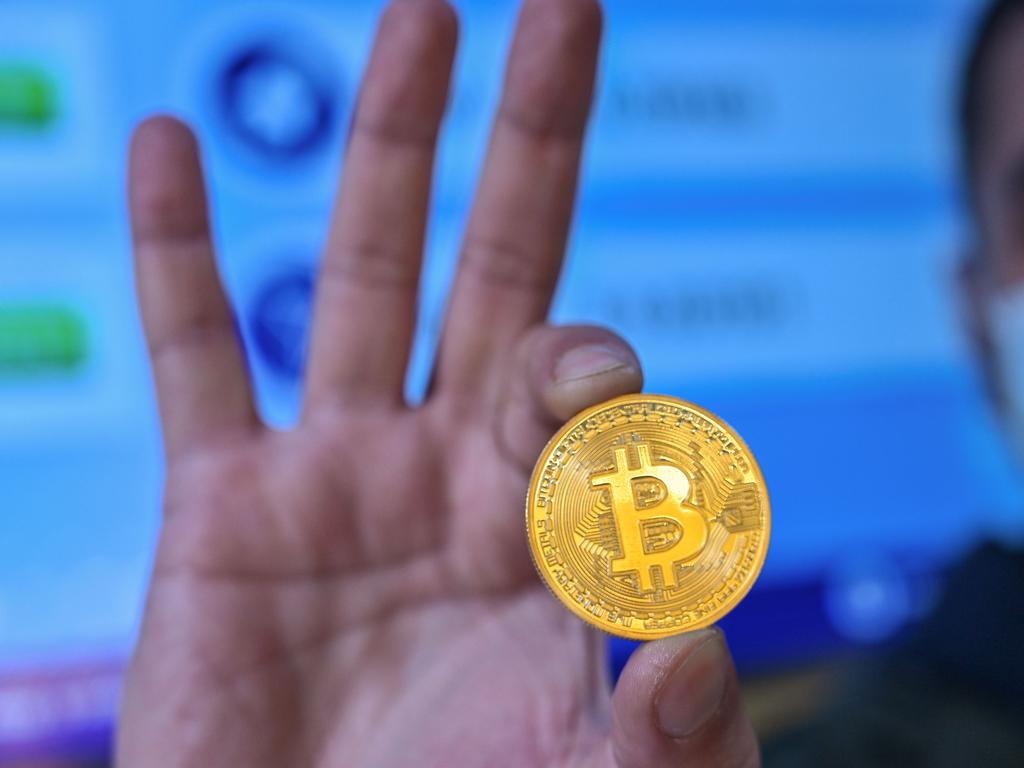Bitcoin a safe haven? Not just yet
The cryptocurrency’s value has soared as investors of all kinds have raced frantically to buy into it.

Big bank analysts in London and on Wall Street tend to steer clear of bitcoin, no doubt because their bosses have spent years deriding it as a scam. However, there are a few brave souls who dare to report on the digital currency, and their pronouncements often move markets hungry for news.
Last Monday, a team led by Nikolaos Panigirtzoglou, of JP Morgan, predicted that bitcoin would more than quadruple in value to $US146,000 if, ultimately, it was accepted as a digital alternative to gold. The two events may be unconnected, but the price of bitcoin has climbed by about $US9000 since the note was published, surpassing $US41,000 on Friday.
“I went to the dentist and he was talking about bitcoin,” the London-based analyst said. “A hairdresser in Spain was talking about bitcoin. These things remind me of 2017: everyday people started talking about or investing in bitcoin. But there is also an institutional flow. It’s difficult to be bearish when there’s no evidence that the institutional flow is slowing.”
Bitcoin was launched in 2009 with the aim of providing a digital alternative to traditional currency, but despite its growing popularity, bitcoin payments have never gone mainstream. It is, after all, unlikely that world governments would allow an unregulated currency to challenge their own fiat currencies.
So there is a new investment thesis: bitcoin is an effective “safe haven” asset for hedging against higher inflation and a weaker dollar, much like gold. Not everyone is sold on the idea.
“People often ask whether bitcoin will replace gold as a store of value,” said Ruth Crowell, chief executive of the London Bullion Market Association. “My reply is, ‘Ask us again in 200 years’.
“If bitcoin is to be treated like digital gold, it will need to shake off the extreme price swings that have long dogged the market. Big money managers permit only a limited amount of volatility in their portfolios, making bitcoin an unattractive investment. For most, it remains a speculative asset.”
It is impossible to gauge precisely the institutional interest in bitcoin because transactions take place anonymously and are easily kept secret. Some prominent money managers have gone public with their trades, most notably the 170-year-old Massachusetts Mutual Life Insurance Company, which bought $US100m of bitcoin last month.
However, one US bitcoin investment fund is providing more insight into institutional appetite for the digital currency.
The Grayscale Bitcoin Trust allows investors to buy shares that are underpinned by bitcoin, meaning that they do not need to own the digital currency itself. Shares in the $US30bn trust, by far the largest of its kind, can be purchased on the open market or through private placement. In the three months to September, the trust reported inflows of $US719m. JP Morgan estimates that since mid-October, $US3bn has flowed into the trust.
This is attractive to money managers, sovereign wealth funds and family offices that are barred by regulatory or other restrictions from holding digital coins.
If such inflows are indicative of institutional interest in the digital currency, then it appears to be accelerating. However, not all the money is coming from institutional investors. Hedge funds are known to be using complex trades involving bitcoin and the trust’s shares to speculate on the price, effectively amplifying the inflows and, in turn, the bitcoin price. Some analysts are concerned that the dual forces of hedge fund and retail investor speculation have pushed the bitcoin price beyond reason. Even so, nearly all agree that institutional interest is growing.
Retail investors’ interest in bitcoin is also hard to assess accurately, but there are some useful indicators. Digital payments groups Square and PayPal both offer bitcoin options, with Square’s second-quarter report last year showing customers had bought $US875m of bitcoin in the three months to June. For the three months to September last year, the figure was $US1.6bn.
Paypal, another digital payments company, opened its doors to bitcoin transactions in October last year, working in partnership with Paxos, owner of the Itbit exchange, to handle these trades. Bitcoin trading volumes on Itbit grew rapidly from October onwards, exchange data show.
As such, in the short term, three key events are likely to influence the bitcoin price. First, the most recent inflow figures from the Grayscale Bitcoin Trust are expected in the coming days. Next will be Paypal’s fourth-quarter report, due on January 27, which is expected to show the value of bitcoins purchased by customers in the three months to December. In the same vein, Square’s fourth-quarter report is due at the end of February. There are whispers on Wall Street that its customers bought about $US5bn of bitcoin in the last three months of 2020.
On Thursday, the market value of bitcoin and all other digital currencies in circulation, such as ether and XRP, surpassed $US1 trillion for the first time. CME Group, the American financial exchange operator, will begin offering ether futures contracts on February 8, bringing mainstream acceptance to the second most actively traded digital currency. Nonetheless, Mr Panigirtzoglou believes that “not many institutional investors are looking outside of bitcoin. There is no other coin that has the status that bitcoin has.”






To join the conversation, please log in. Don't have an account? Register
Join the conversation, you are commenting as Logout